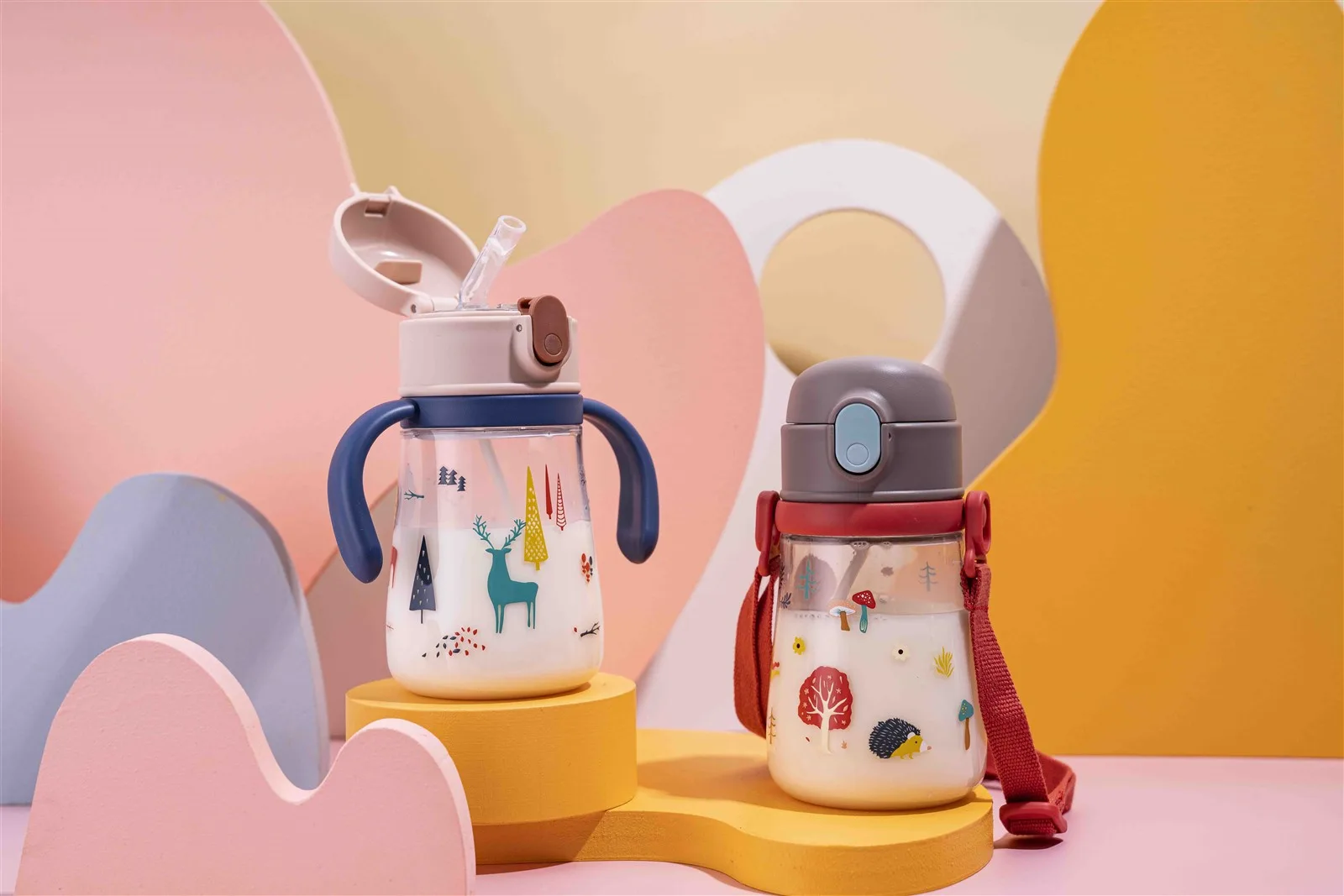Plastic cups have a variety of shapes and are not afraid of collisions, making them a popular choice for children’s water cups. However, although plastic cups are not easily damaged, long-term use by children can still have certain effects, so regular replacement is necessary. Usually, children’s plastic water cups are replaced immediately after damage, and even if they are not damaged, they should be replaced once a year. Children’s water cups should be cleaned daily during use.
Compared to regular plastic cups, children’s plastic water cups have a smaller capacity, higher safety, and better sealing and leak proof performance, usually with straws. As is well known, plastic water cups are relatively resistant to falling and are not easily damaged, and their service life is usually around 3-5 years. However, children’s plastic cups should not be used for too long because plastic water cups are prone to breeding bacteria and mischievous babies may bump the cups, affecting their use. Therefore, the frequency of replacing plastic cups for children should not be too long.
It is recommended to choose safe and high-quality plastic water cups made of materials such as Tritan and PPSU, and try to replace them immediately if they are damaged and once a year. If it is a plastic milk bottle, it needs to be replaced more frequently, preferably every two to three months. Plastic cups cannot avoid aging problems, and children’s bumps and bumps during use accelerate the aging process of plastic water cups. Therefore, it is best to replace children’s water cups once a year if they are not damaged.
How to clean children’s plastic water cups?
Pay attention to the cleanliness of children’s water cups, which has a significant impact on children’s health.
You can purchase a cleaning brush specifically designed for cleaning baby bottles, with a slender brush and a bristle brush on top that can clean the straws of children’s plastic water cups. When cleaning the cup, first remove the straw from the cup cover and thoroughly clean the straw and the water outlet on the cup cover. Milk and other liquids are prone to oxidation on the cup, so the joints, corners, or hidden corners of the cup should be cleaned thoroughly.


